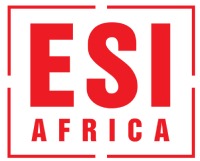Nigeria: Mini-grid development in agriculture-rich state
Abia State is working with the ISA to develop regulations for mini-grid operations as it looks to increase electricity access
The Abia State Government in Nigeria has announced landmark collaborations with the Federal Government, World Bank and the International Solar Alliance (ISA) to scale up renewable energy development through mini-grid deployment.
The State’s Commissioner for Information, Prince Okey Kanu, said this week that Abia is “actively participating” in the $750 million World Bank–backed Distributed Access to Renewable Energy Scale-Up (DARES) programme, which is expected to significantly boost power supply across the state.
Plan part of the liberalisation of the Nigerian electricity sector
Kanu said the state government is working with the ISA to develop regulations for the operation of mini-grids in line with the newly signed Abia State Electricity Law 2025.
According to him, this will provide a “thriving environment for investment, sustain solar power projects, and help mitigate climate change.”
Nigerian states can run their own electricity system after President Bola Tinubu signed the Electricity Amendment Bill into law in 2024, granting states the authority to generate, transmit and distribute power within their borders.
Kanu said the partnership with ISA forms part of the state’s agenda to expand its presence in the power sector through major investments and by attracting private capital, leveraging the support of the 123-member intergovernmental treaty-based organisation.
ISA aims to promote solar energy and reduce the cost of solar power generation through a dedicated platform for cooperation among solar resource rich countries and the wider global community.
Last month, as part of a drive to improve public health services and reduce reliance on Nigeria’s national grid, the Abia State Government announced that it had commissioned a 150kVA solar power system and 430kWh battery storage facility at the Abia State Specialist and Diagnostic Centre in Umuahia.
The solar-powered infrastructure is expected to support uninterrupted healthcare service delivery, with plans underway to replicate the initiative across other medical centres in the southeastern state.
The State’s Commissioner for Power and Public Utilities, Ikechukwu Monday, said 10 similar facilities are in the pipeline.
Building out the mini-grid pipeline across Nigeria
In May, ESI Africa reported that interconnected mini-grids (IMGs) are poised to scale rapidly in Nigeria.
The DARES programme, widely implemented by the country’s Rural Electrification Agency and supported by the World Bank, is meant to support 125 IMGs with up to $127m in grant funding over the next three years.
At the same time, the Nigerian Electricity Regulatory Commission (NERC) has mandated that the country’s electricity distribution companies (DisCos) should procure 10% of their annual energy supply from embedded generation, with at least 50% sourced from renewable energy.
The Partnerships for Power Unlocking Scale for Interconnected Mini-grids in Nigeria report published earlier this year by RMI and the Global Energy Alliance for People and Planet (GEAPP) said that the national grid only meets 20% of the country’s electricity demand.
The Abia State Government has highlighted that agriculture is a major part of its economy through the use of fertile lands, forests and rivers for crops like oil palm, yam and cassava, as well as livestock and fisheries.
Cover photo: zaikavirus©123rf


